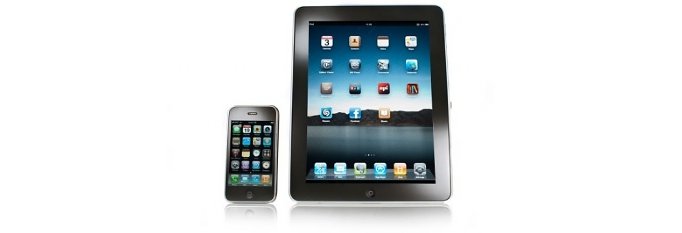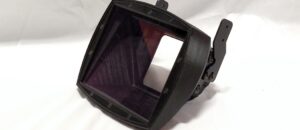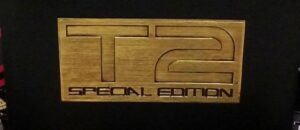In an act of stunning contradiction and irrationality, the Library of Congress ruled last week that, while it’s acceptable for iPhone or smartphone owners to “jailbreak” (to crack hardware limitations in order to install software not authorized by the device manufacturer) their phones, it is illegal to do so to an iPad, tablet computer or gaming console. Why one and not the other? Well, because they said so. So there. Also, if you’ve ever ripped a DVD or Blu-ray you’ve purchased to store on a media server, you’re also breaking the law, even if you only intend to keep those files for personal use while you still own the hard copy. The last vestiges of “Fair Use” have been tossed to the wayside.
The Digital Millennium Copyright Act passed in 1998 severely limited the rights of consumers to modify electronic or software products they’ve purchased, allegedly to prevent piracy. For example, the DMCA expressly forbids the cracking of any encryption on a DVD or Blu-ray disc, because that’s what pirates do when they want to bootleg a movie. Likewise, some naughty users jailbreak phones, tablets or game consoles in order to install bootleg software and apps. These are all big no-nos that the government wants to stamp out.
However, the DMCA ignores the possibility that some consumers may have perfectly reasonable, non-infringing reasons for wanting to bypass a disc’s encryption, such as moving the content to a home media server for personal use – or may simply want to use the electronic devices they’ve purchased in a way the manufacturers hadn’t considered. After all, once you’ve paid for an item, shouldn’t you be allowed to use it however you want, so long as you don’t receive illegal profits from the result?
According to the Library of Congress, no. Anyone who uses a product in a manner that it wasn’t explicitly designed for must be a criminal. Based on recommendations from the U.S. Copyright Office, the Library of Congress has the power to review the DMCA and grant exemptions. This year’s rulings make no sense at all.
The jailbreaking of smartphones was first granted an exemption to the DMCA back in 2010. While the Library of Congress extended that ruling last week, requests to apply the same exemption to tablet computers or game consoles were denied. How is one different than the other? The Librarian, “found significant merit to the opposition’s concerns that this aspect of the proposed class was broad and ill-defined, as a wide range of devices might be considered ‘tablets,’ notwithstanding the significant distinctions among them in terms of the way they operate, their intended purposes, and the nature of the applications they can accommodate. For example, an e-book reading device might be considered a ‘tablet,’ as might a handheld video game device or a laptop computer.”
In other words, the Library doesn’t want an exemption that might be granted to a “tablet” to be interpreted to apply to other similar tablet-like devices. I still fail to see how this is any different than smartphones. If you’re allowed to jailbreak an iPhone, are you not also allowed to jailbreak an iPod Touch? What about so-called “phablet” devices such as the Samsung Galaxy Note that fall midway between a smartphone and a tablet? Are those legal or illegal? And why has the Library of Congress decided that it’s OK to install bootleg software on a smartphone anyway? Shouldn’t it be all or nothing?
The situation with movie software makes even less sense. It’s illegal to crack DVDs and Blu-rays to watch on a different device or platform, but it is legal to copy a movie for use in a documentary film (“to make use of short portions of the motion pictures for the purpose of criticism or comment”). So, if you want to rip the disc to watch on your computer, with no intention of receiving profits from this action, you’re breaking the law. However, if you want to use pieces of someone else’s copyrighted material in a work that you fully intend to sell for profit, that’s perfectly fine. Isn’t that the exact opposite of the intent behind the DMCA in the first place?!
[via Ars Technica, CNET and Computerworld]






Chaz Dumbaugh
Yeah I could probably go on forever about this subject, its ridiculous the laws and rules that are in place and make absolutely no sense what so ever. If I’m buying a DVD or Bluray for $20-$30 it shouldnt just be a license to watch it. I own that disc and should be able to do what I want to with it, if I want to rip the movie I own on to another device that I also OWN. I should be allowed to do that. If I decide to rip the movie to multiple DVDs, hand them out to friends or try and sell them on the local street corner, I should be arrested.
Stuff that is perfectly legal, well SHOULD be legal, arent and other things that shouldnt be are. the US is so messed up when it comes to this stuff.
Right now they are constantly fighting legislation about this kind of stuff, the emails I’ve been getting about legislation on reselling your own stuff is becoming a problem now, supposedly congress or whoever is working on preventing you from reselling items you’ve bought at garage sales, flea markets, ebay and the like. Which again is completely insane, its really moving towards the idea that you dont own ANYTHING you buy anymore, you wont be able to rip it, you wont be able to resell it and as things go further digitally it will get even worse, because people like us who are fans of physical discs are certainly fighting a battle for our collections. If things go further digital you really wont own anything anymore, just a bunch of numbers and the ability to watch it, you wont be able to sell it, copy it, etc. and its really a damn shame that we are moving in this direction
William Henley
Why is the Library of Congress making these decisions anyways? Shouldn’t it be Congress or the Supreme Court that is making these decisions?
EM
I thought Josh’s article explained the mechanics well enough. The short of it is that Congress has enacted legislation that directs the Library of Congress to make certain decisions regarding exemptions to the copyright law, and the Library has done just that. Of course, both the legislation and the Library’s acts are subject to judicial review.
William Henley
Ah, so just like everything else in the US at the moment, it is only illegal until someone challenges it in court, at which time half will be prosecuted, half will get off, and one case will spend years in the courts until it hits the Supreme Court, all the while while they are rulling on it or deciding to send it down to lower courts, other branches of government are already working on rewriting the law.
I gather that this means that I can watch movies on my laptop if it has a DVD player, but I can’t watch the same movie on my tablet unless I install Netflix on it, because heaven forbid that I rip the DVD myself and put the mp4 file on my tablet for my own personal use. Although, I could always find some video editing software and put it on my tablet, then it will be just fine.
Just thought of something – I guess this means that we can legally copy movies if we sync up the Rifftrax with it.
Trond Michelsen
OK, so let me get this straight. I’ve bought about 1000 titles on DVD and Blu-ray, and I’ve ripped them all to my fileserver, which I’m the only one that has access to.
In an otherwise identical paralell universe, I’ve downloaded all of these titles, without buying a single DVD or blu-ray.
According to the law, I’m a criminal in both universes, and will get the same punishment? If so, what’s the point of buying the discs at all?
Alex
Do you get the impression that James H. Billington (the Librarian of Congress who issues these decrees) watches VH1? “to make use of short portions of the motion pictures for the purpose of criticism or comment” just sound like a proviso added to allow for more “I Love the 80’s” episodes.